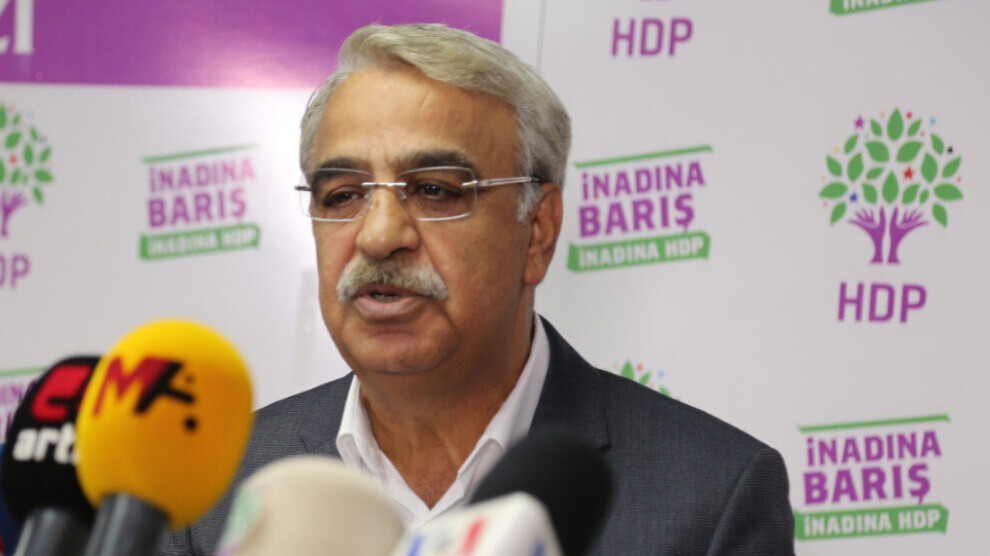Sancar: Erdoğan's discourse reflects state mentality
Erdoğan's demagogic statement that PKK members have up to 15 children has caused bewilderment. HDP leader Mithat Sancar sees in this discourse a mentality on which state policy in Turkey is based.
Erdoğan's demagogic statement that PKK members have up to 15 children has caused bewilderment. HDP leader Mithat Sancar sees in this discourse a mentality on which state policy in Turkey is based.

Turkish President Recep Tayyip Erdoğan's recent remarks on the number of children reflect a state ideology that is the basis for a denialist, assimilationist policy, Mithat Sancar, co-chair of the Peoples' Democratic Party (HDP), said on Saturday. Erdoğan caused stupefaction earlier this week when he advised Mehmet Ali Çelebi, a former opposition MP who has switched to the AKP, to have more children. Erdoğan advising parents to have more children is not new. What was surprising, however, was the way he justified it, saying: "The numbers should be increased, you see, the PKK has five, has ten, has 15 children."
“HIGH NUMBER OF CHILDREN IS CONSIDERED A TERRORRIST ACT”
Many comments later said that Erdoğan meant the Kurdish people and not the PKK. "Erdoğan knows very well that the members of the organisation [PKK] do not have children. In reality, he is building a nationalist rhetoric by implying the Kurdish people. The Kurds have understood this. He sees a high number of children as a terrorist act," said HDP MP Meral Danış Beştaş, adding that behind this is a pronounced racist and Kurdish-hostile mentality.
“DEMOGRAPHIC ENGINEERING”
Mithat Sancar said at a meeting of the HDP provincial association in Ankara on Saturday: "This discourse cannot be evaluated as words uttered unconsciously. This utterance reflects a mentality that is the basis of the denying, assimilating state policy. This mentality can technically and mildly be called demographic engineering used as an instrument of assimilationist policy."
HIGHRER BIRTH RATE IN KURDISTAN
The higher birth rate in the Kurdish-populated regions of Turkey has been a widespread concern of Turkish nationalists for years, who fear the loss of their demographic advantage in the future. Kurds are estimated to make up at least 20 per cent of the country's population. As the proportion of young people in particular is larger in Kurdistan, it can be assumed that the population shares will equalise in the coming years.